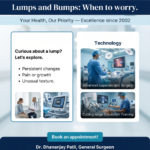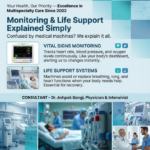Introduction
Appendicitis is a common medical condition characterized by inflammation of the appendix, a small, tube-like structure attached to the large intestine. While often considered a routine surgical emergency, appendicitis warrants comprehensive understanding due to its potential for serious complications if left untreated. In this blog, we will delve into the intricacies of appendicitis, exploring its causes, symptoms, diagnosis, and treatment options, with the aim of providing readers with valuable insights into this condition.
Anatomy and Function of the Appendix
To understand appendicitis fully, it’s essential to comprehend the anatomy and function of the appendix. The appendix is a finger-shaped pouch located in the lower right side of the abdomen, connected to the large intestine. Despite its small size, the appendix plays a role in the immune system, contributing to the body’s defense against infection.
Causes of Appendicitis
While the exact cause of appendicitis remains unclear, several factors can contribute to its development. One common theory suggests that appendicitis occurs when the appendix becomes blocked, leading to bacterial overgrowth and subsequent inflammation. The blockage may result from fecal matter, foreign bodies, or enlarged lymphoid tissue. Additionally, infections or inflammatory conditions in the digestive tract can trigger appendicitis.
Symptoms of Appendicitis
Recognizing the symptoms of appendicitis is crucial for prompt diagnosis and treatment. The classic symptoms include:
- Abdominal Pain: The most common symptom of appendicitis is abdominal pain that typically starts near the navel and gradually shifts to the lower right side of the abdomen. The pain may worsen with movement, coughing, or sneezing.
- Loss of Appetite: People with appendicitis often experience a loss of appetite, accompanied by a feeling of nausea.
- Nausea and Vomiting: Nausea and vomiting are common symptoms of appendicitis, occurring as a result of irritation and inflammation in the abdomen.
- Fever and Chills: In some cases, appendicitis can cause fever and chills, indicating an inflammatory response to the infection.
- Change in Bowel Habits: Appendicitis may lead to changes in bowel habits, such as diarrhea or constipation.
It’s important to note that the presentation of symptoms can vary from person to person, and some individuals may not exhibit all of the classic signs.
Diagnosis of Appendicitis
Diagnosing appendicitis involves a combination of clinical evaluation, laboratory tests, and imaging studies. During the physical examination, healthcare providers assess the patient’s symptoms, focusing on tenderness in the lower right abdomen. Laboratory tests, such as a complete blood count (CBC) and urinalysis, may be conducted to rule out other possible causes of abdominal pain.
Imaging studies, such as ultrasound and computed tomography (CT) scans, play a crucial role in confirming the diagnosis of appendicitis. These imaging modalities help visualize the inflamed appendix and identify any complications, such as perforation or abscess formation.
Complications of Appendicitis
Untreated appendicitis can lead to serious complications, including:
- Perforation: If the inflamed appendix ruptures, bacteria and fecal matter can spill into the abdominal cavity, causing peritonitis, a life-threatening condition characterized by severe inflammation of the abdominal lining.
- Abscess Formation: In some cases, pus may accumulate around the inflamed appendix, leading to the formation of an abscess. Abscesses require drainage and antibiotic therapy to prevent further complications.
- Sepsis: Severe infection resulting from untreated appendicitis can lead to sepsis, a systemic inflammatory response that can cause organ dysfunction and failure if left untreated.
Treatment Options for Appendicitis
The primary treatment for appendicitis is surgical removal of the inflamed appendix, a procedure known as an appendectomy. Appendectomy can be performed using traditional open surgery or minimally invasive techniques, such as laparoscopy. Minimally invasive approaches offer several advantages, including shorter recovery times and reduced postoperative pain.
In cases of uncomplicated appendicitis, where the appendix has not ruptured, surgery is often performed promptly to prevent complications. However, in some situations, particularly in elderly patients or those with underlying medical conditions, a period of observation and antibiotic therapy may be considered as an alternative to immediate surgery.
Recovery and Prognosis
Most patients recover fully from appendicitis after undergoing surgery. Following an appendectomy, individuals typically experience a period of recovery, during which they may need to rest and avoid strenuous activities. Pain medication and antibiotics are often prescribed to manage discomfort and prevent infection.
The prognosis for appendicitis is generally favorable, especially when the condition is diagnosed and treated promptly. However, delayed treatment can increase the risk of complications and prolong the recovery period.
Conclusion
Appendicitis is a common abdominal condition that requires prompt recognition and treatment to prevent serious complications. By understanding the causes, symptoms, diagnosis, and treatment options for appendicitis, individuals can take proactive steps to safeguard their health and seek timely medical attention when necessary. If you or someone you know experiences symptoms suggestive of appendicitis, it’s essential to consult a healthcare professional for evaluation and appropriate management. With timely intervention, most cases of appendicitis can be successfully treated, allowing patients to resume their normal activities and enjoy good health.
#pune #pcmc #chinchwad #hospital #appendix #appendicitis #appendicitissymptoms #appendixpain #surgery #appendectomy #signsofappendicitis #acuteappendicitis #appendicitiscauses #appendixsurgery #appendicitistreatment #appendicitissurgery #appendicitispain #repturedappendix #appendixremoval #abdominalpain #surgicaldisease #acuteappendicitis #generalsurgeon













